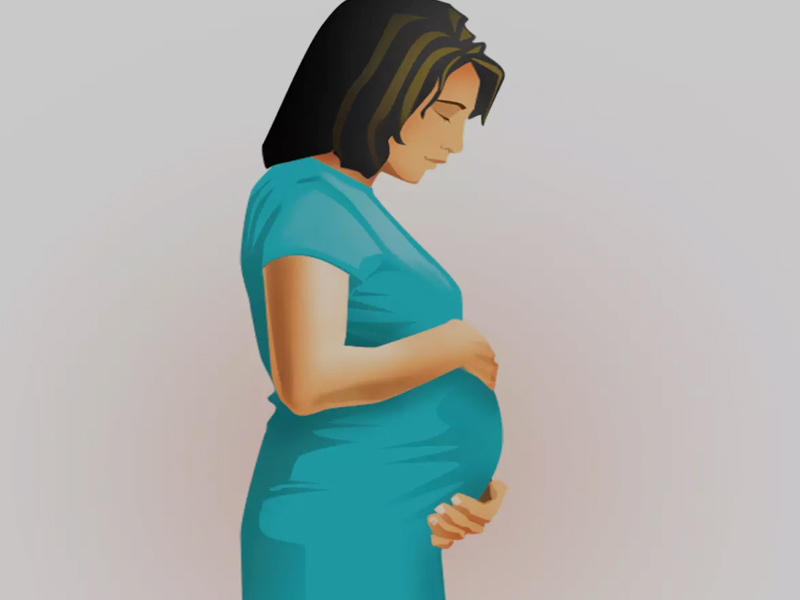
A high Risk Pregnancy can be managed, and any women with high-risk pregnancies can still have healthy babies and safe outcomes. But, what constitutes a high-risk pregnancy? You fall into the category of a high risk pregnancy if there are certain factors like pre-existing disorders, maternal age, and lifestyle. Hence, listed below are some factors that could make you prone to high-risk pregnancies, explains Dr Shefali Tyagi, Consultant - Obstetrician and Gynecologist, Cloudnine Group of Hospitals, Bangalore (Bellandur):
Table of Content:-
- Maternal age: Pregnancy if the women's age is 35 or older increases the risk for preeclampsia and gestational high blood pressure
- Existing Disorders: Have medical disorders like diabetes, blood pressure, epilepsy, rheumatic arthritis etc.
- Have previous surgeries on uterus like fibroid removal, have multiple pregnancies like twins, have conceived by IVF.
- Sometimes you start with low-risk pregnancy but develop blood pressure during the pregnancy or the baby shows a growth lag or fluid decreases with time and then it forms high risk pregnancy.

Also Read: Expert Explains About Fallopian Tube Blockage & Its Impact on Fertility
Myths associated with High Risk Pregnancy
High-risk does not mean you have an above-average chance of complications during your pregnancy. It does not definitively mean that anything will go wrong. You will be closely monitored while you are pregnant. The key is to stay healthy and wise, and the healthier you are, the more chances you have for a successful delivery. Following are some myths as told by Dr Tyagi:
- High-risk pregnancy does not mean it could be a possibility in all pregnancies. It totally depends on the existing health conditions that could be the reason for the high-risk pregnancy at that particular time.
- Having a high-risk pregnancy does not mean that pregnancy will be difficult. The key is to have proper monitoring and testing as specified by the doctor.
- High-risk does not put your baby in danger or have any pre-birth conditions. It is likely to happen that those termed as 'high-risk pregnant may have extremely safe and comfortable pregnancies.
- Age has nothing to do with a high-risk pregnancy. It is actually a mix of axe and other health conditions that actually is a deciding factor.
Some Tips to Prevent a High Risk Pregnancy
No one wants a complicated pregnancy. To get pregnant these days is itself a challenge and on top of that to have sleepless nights for 9 months worrying about yourself or baby is not easy. How to ensure that yours is an uncomplicated pregnancy?
1# Plan Early
Don't wait for the biological clock to start ticking. The older you get the chances of miscarriage will increase. The baby might show more incidence of having a chromosomal abnormality. The problems of diabetes and blood pressure can hound you. Late twenties to early thirties will be ideal age for pregnancy.
2# Start with healthy BMI
Your weight plays an important role in determining you risk of pregnancy. The more overweight you are, riskier it is. It becomes difficult to carry the baby to term uneventful. Exercise regularly and keep your weight under control before pregnancy and during pregnancy.

3# Do your medical checkup regularly
Your sugar and TSH ( thyroid stimulating Hormone) should be measured regularly. Even before conceiving, do the blood tests to make sure these values are fine
4# Do a pre pregnancy counselling with your gynecologist
You will be advised a folic acid tablet to take, some blood tests will be done and ultrasound of pelvic organs to make sure you are healthy to start a family. Many women discover first time during pregnancy that they have a huge tumour in uterus – fibroid or ovary has a cyst. It suddenly takes your pregnancy to high risk category and can lead to severe pain or poor growth of baby or miscarriages.
5# Visit doctor regularly
During pregnancy, visit the gynecologist regularly. Timely checkups, blood tests and ultrasounds help to pick up any trouble early and prevent bad outcomes. Grandma will continue to say that ultrasound is harmful for baby but actually it helps in correctly identifying troubles which are commonly seen now-a days like low fluid around the baby. Doctor will inform about when and which scan to do and interpret it later.
Also Read: Gynaecologist Talks About The Symptoms And Treatment Of Postpartum Depression
6# Eat Healthy
Eating appropriate diet in pregnancy is of utmost importance. A balance diet with right amount of proteins, carbohydrates and vitamins will prevent common deficiencies in you and the baby including anaemia, Vitamin B12 and d deficiencies. Inclusion of fibres in diet will keep common problem of constipation away. Make sure all dairy products are pasteurized and all meat/eggs are fully cooked which will bring down the risk of infections.
7# Beware of cats
If you have a cat as a pet, let your husband handle the waste. There is a risk of toxoplasmosis (infection transmitted by cat faeces) if you are not careful that can have a bad effect on the baby
It is very important to stay informed and have a support system with family and friends during this time and communicate your needs.
With inputs from Dr Shefali Tyagi, Consultant - Obstetrician and Gynecologist, Cloudnine Group of Hospitals, Bangalore (Bellandur)
Read more articles on Women's Health
Also watch this video
How we keep this article up to date:
We work with experts and keep a close eye on the latest in health and wellness. Whenever there is a new research or helpful information, we update our articles with accurate and useful advice.
Current Version